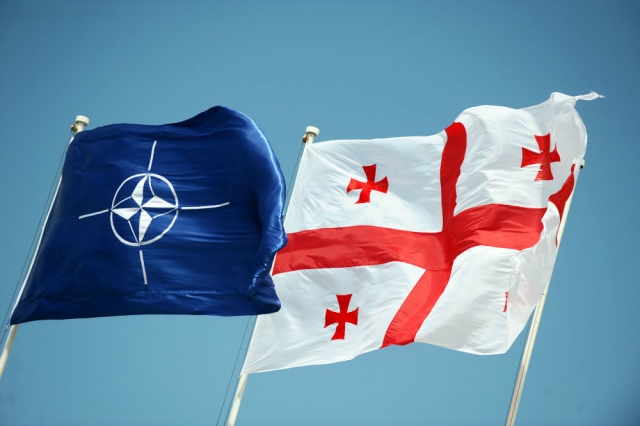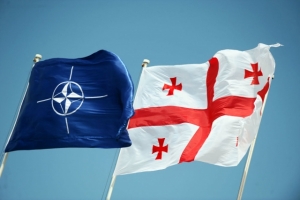StratCom and Russian (Not So) Soft Power
NATO Week, the ninth of its kind, took off in Georgia on April 4 with the launch of NATO-Georgia Public Diplomacy Forum, which was held for the first time in Tbilisi. The event, as well as the NATO Week, was organized by the Information Center on NATO and EU in coordination with the Office of the State Minister of Georgia on European and Euro-Atlantic Integration with the support of the Ministry of Defense of Georgia, NATO Liaison Office in Georgia and the Embassy of Romania in Georgia (CPE).
The Forum took place in the cozy conference hall of Radisson Blu Hotel. The high-profile debate, with an abundantly rich selection of strategic communication actors from the West’s top decision making organizations, enjoyed the attendance of an engaged and motivated audience. The Prime Minister of Georgia, Giorgi Kvirikashvili; State Minister on European and Euro-Atlantic Integration, David Bakradze; and Deputy Assistant of NATO Secretary General, Ted Whiteside, welcomed the participants. The PM emphasized the importance of ever-strengthening cooperation between Georgia and the Alliance in his speech, stressing that Georgia’s desire to become a member of the North Atlantic Treaty Organization is unwavering and that the country “wants to hear a clear message” regarding its closer integration into the North Atlantic block at the NATO Warsaw Summit in 2016.
“We spare no effort to retain the positive dynamics of the NATO integration process and to make NATO-Georgia relations even more significant in terms of progress and tangible results in this direction. Georgia, as an aspirant country, puts particular emphasis on strengthening its ties with NATO and performs important responsibilities in terms of NATO’s rapid reaction forces and NATO missions. In view of NATO approximation, Georgia expects significant progress in both political and practical terms during the Warsaw summit,” said the PM.
The sentiment was shared by Minister Bakradze, who voiced the hope that the Forum would facilitate further expansion of the network of public diplomacy experts, “ensure information and experience sharing and development of common strategies and approaches.”
“Tangible deliverable is the best way to tackle disinformation” he added.
True to the Minister’s wishes, participants at the first day of the Forum discussed issues including hybrid warfare and the role of strategic communication in countering it, the establishment of state run media as a tool of propaganda and the limits of freedom of expression in an era filled with the perils of growing extremism and violence. Particularly noteworthy was the contribution of Anneli Kimber, a representative of the European Union’s East Stratcom task force that is dedicated towards exposing and distributing information about Russian propaganda. The honest and objective review of their own strengths and limitations, provided by the speaker, was arguably the best way for the Brussels-based unit to set reachable goals in an uneven battle. The ongoing revamp and redesigning of the approaches employed by the EU communication actors, particularly those aiming at more active involvement from the local (in this case, Georgian) media outlets, also seemed reasonable and full of promise.
The second day of the Forum was devoted to NATO-Georgia cooperation, expectations for the NATO Warsaw summit and, once again, the importance of effective strategic communication. In this scope, a specific workshop for media professionals was also held – where the officials from NATO HQ, the US, the EU, Britain, Estonia, Latvia, Romania, Montenegro, Ukraine and Moldova sat down with Georgian journalists to speak about effective strategies in strategic communication. Engaging and lively, the workshop sparked many interesting and innovative ideas.
The NATO Week in Georgia is due to last until April 19th.
Vazha Tavberidze












